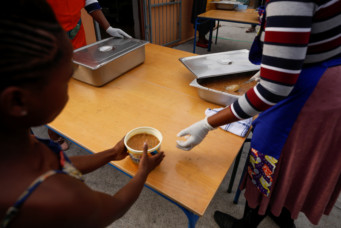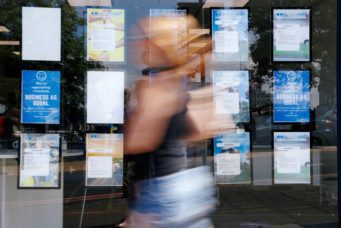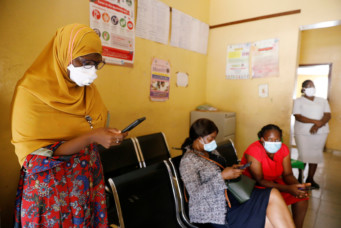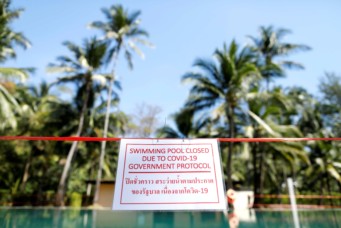Global vaccine equity is a moral and economic imperative—here is how to get it right
With increasingly dangerous variants of the COVID-19 virus spreading across the Global South, vaccine equity is not only a moral imperative, but also key to keeping the global economy afloat.

With the WHO classifying the coronavirus variant identified in India as a global “variant of concern,” the importance of global vaccine equity has received a renewed focus. The variant, officially identified as B.1.617.2, has recently been labeled as “Delta” to aid public discussion of the policies around it . Given the lack of robust data on infected individuals, conservative estimates suggest that as many as 400 million people may be affected in India. Since vaccines are one of the most effective methods to stop the transmission of the virus, these developments underscore the importance of distributing the vaccine to as many people as quickly as possible. Now, with the US supporting the IP waiver on COVID supplies, there is a possibility that more countries might be able to manufacture vaccines.
Even if some countries take the lead in manufacturing COVID vaccines, there needs to be an implementation strategy for their equitable distribution among different countries. With varying health care and financial resources, different countries have already engaged in “vaccine nationalism” — a scenario where countries that developed the vaccine are unfairly prioritizing their own populations at the expense of developing nations who may not have the resources but require the vaccine more urgently (such as the current need in India).
In addition to the healthcare consequences, there are global ramifications for not containing the spread of coronavirus variants (including Delta). To begin with, the variant can prolong international travel restrictions, demonstrated by the impact these variants are having in places such as Hong Kong and the United Kingdom, which could further derail opportunities for business initiatives and education for international students. India, for example, is also one of the largest manufacturers of medications, especially vaccines, and as long as the crisis persists, the global vaccine supply chains could be severely impacted. Recently, the United States Chamber of Commerce has also underscored how the ongoing surge in infections can jeopardize the recovery of large parts of the global economy, especially since much of the back-office operations for numerous global companies are based in India.
The moral case for global vaccine equity has been clear from the beginning of the pandemic. We have already witnessed how the impact of the pandemic has been disproportionately felt by racial minorities in developed nations and the economically disadvantaged in developing ones. Internationally, the pandemic has also upended the progress of ongoing efforts in global health care delivery, on diseases that consume millions of lives per year, including tuberculosis and malaria.
From an economic perspective, a recent analysis from the National Bureau of Economic Research (NBER) demonstrated that if low- and middle-income countries are not able to vaccinate more than half of their populations, the loss to the global economy would amount to approximately $4 trillion. The loss increases to $9 trillion if these countries are unable to vaccinate their populations at all. The research also reveals that this economic burden will fall on the United States, Japan, and countries in Europe. Much of this loss is already evident, not only at the macro level, such as the economic trajectory of different countries, but also on the micro-level, with the curtailment of educational opportunities in schools and universities.
In addition, with targeted vaccine delivery strategies lacking, variants of the virus are spreading unabatedly, which further complicates the opportunities to control the pandemic. This impact will not be limited to countries in South Asia. Worryingly, given the similarities in healthcare infrastructure and demographics (young populations, large rural distribution of people) between South Asia and Africa, policymakers in African countries need to play a proactive role. The Delta variant was first observed in Uganda and has already spread to eight other African countries. Given the highly transmissible nature of this variant and its tendency to affect young people, healthcare policymakers in African countries also need to develop implementation strategies that can help vaccinate vulnerable groups as quickly and effectively as possible.
In African countries, in addition to promoting non-pharmaceutical interventions (masks, physical distance, hygiene), policymakers also need to invest resources in developing consistent and evidence-based messaging, as complacency was one of the driving factors behind the unmitigated spread in India. Additionally, with only 2 percent of the population vaccinated in Africa, government and public health leaders must develop protocols that address gaps in vaccine awareness, prioritization, and delivery methods.
Last fall, more than 150 countries committed to joining the COVAX Facility, a global initiative that aims to ensure equitable distribution of COVID vaccines by contributing towards a purchasing pool organized by WHO and other non-governmental organizations. As a first step, WHO has recommended that countries initially obtain vaccine doses proportional to their populations, until all countries attain vaccine rates of 20 percent. The next step in the WHO plan is to enable the expansion of vaccination coverage, depending on a country’s vulnerability to COVID. However, health policy and bioethics researchers from more than a dozen global universities disagree with this approach. Instead, they have proposed a novel framework for global vaccine distribution, called the “Fair Priority Model,” which is based on moral concerns and the current needs of different countries.
With more dangerous variants (Delta and Gamma) spreading to numerous countries, this framework can inform developing country-specific guidelines. The distribution framework is based on three ethical principles: benefiting people and limiting harm, prioritizing the disadvantaged, and promoting equal moral concern. These principles are guided by the belief that any allocation of the COVID vaccine will require alleviation of the impact of the pandemic in the future.
This model can be implemented in three phases. The first phase focuses on reducing foreseeable premature deaths, the second phase on reducing economic or social harm, and the last phase on reducing the transmission of coronavirus within a community.
For phase one implementation of the model, policymakers should use population metrics, such as Standard Expected Years of Life Lost (SEYLL) averted per dose of vaccine, especially for calculating unnecessary deaths. SEYLL is defined as “a person’s life expectancy at each age as estimated on the basis of the lowest observed age-specific mortality rates anywhere in the world.” Using this metric presents a more equitable, and morally defensible metric, for COVID vaccine distribution.
For the next phase of implementation, vaccine distribution plans should use overall economic improvement in the country and likelihood of falling into poverty for individuals, to evaluate the socio-economic impact of the distribution. In the last phase, the model recommends prioritizing nations that suffer from increased rates of coronavirus transmission (such as India right now), with the ultimate goal of allocating vaccines until virus transmission is impeded, which could require up to 70 percent of the population to be immunized.
While the tragedy in India is ongoing, the impact of not vaccinating enough people is being felt in numerous countries around the world. This is why it is necessary that global policymakers get the distribution and prioritization of the vaccine right. Vaccination campaigns offer one of the most effective ways to break the chain of viral transmission and reduce the burden on vulnerable health systems in developing economies. The distribution of the COVID vaccine is a significant moral challenge for governments around the world, but as long as they incorporate equity in their delivery programs, they can ensure the safety of their populations.
Junaid Nabi, MD, MPH, is a health systems researcher working at the intersection of health care reform and innovation. He is a senior fellow at the Aspen Institute and serves on the Working Group on Regulatory Considerations for Digital Health and Innovation at the World Health Organization. Twitter: @JunaidNabiMD.
Read MoreSubscribe to Our Newsletter





